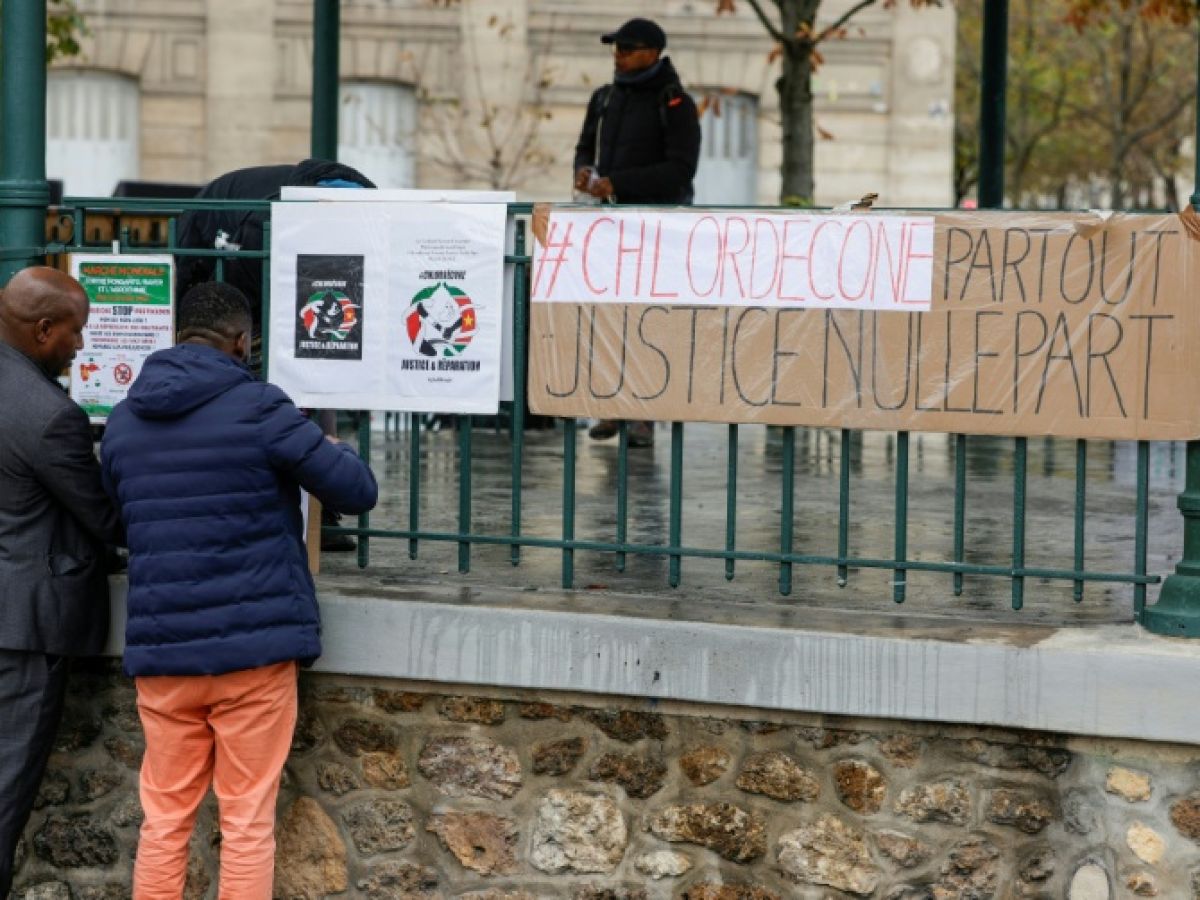"As if you were asked to climb Everest running against the wind, in the middle of the snow": Alex Ursulet sums up the challenge for the civil parties who are contesting the dismissal of the case in the chlordecone health scandal before the Paris Court of Appeal on Monday.
The courts have been examining this sprawling case for almost 20 years, named after a pesticide used in banana plantations to combat the weevil until 1993, although it had been classified as a possibly carcinogenic agent by the International Agency for Research on Cancer since 1979.
As early as 2006, the first complaints of administration of harmful substances or poisoning, against the State or against unknown persons, came from Guadeloupean and Martinican associations of agricultural producers, consumers, environmental defenders and health protection. A judicial investigation was opened in 2008 in Paris.
Mr. Harry Durimel did not hide his "emotion" at "carrying the voice of the people of Guadeloupe and Martinique," recalling to the press that he had "initiated the first complaint," just before entering the hearing on Monday, which is being held behind closed doors before the investigating chamber of the Court of Appeal.
Seventeen years after the first complaint, fifteen after the opening of a judicial investigation in Paris, two Parisian investigating judges therefore pronounced a dismissal in January 2023, arousing bitterness and anger in the Antilles.
– “Almost indecent” –
However, the magistrates acknowledged in their order a "health scandal" and an "environmental attack whose human, economic and social consequences affect and will affect for many years the daily lives of the overseas inhabitants concerned."
But the order, which AFP has seen, also highlighted the difficulty of "providing criminal proof of the facts reported," "committed 10, 15 or 30 years before the complaints were filed."
What are the civil parties' chances of having the investigation reopened? "It's like asking you to climb Mount Everest running against the wind, in the middle of the snow. It seems difficult, if not impossible, to me," says Mr. Ursulet, lawyer for the civil parties.
The civil parties were also put off by the attorney general's indictment. "It was unbecoming of such a moment, for the state representative to simply dismiss our protests as the mere whining of angry people," commented Georges-Emmanuel Germany, another lawyer for the civil parties, outside the courtroom at midday.
His colleague Olivier Tabone, another counsel for the civil parties, also found the "concision" of the attorney general's indictment "almost indecent, even disrespectful" in view of "the nature and the stakes of this case."
The hearing is scheduled to conclude Tuesday morning behind closed doors after a final plea from a representative of one of the civil parties. The decision is expected to be reserved for a later date.
– “Nothing is lost” –
"It's not lost, because nothing is lost, but we must make our voices heard: the elected officials of Martinique and Guadeloupe must also get angry, they must bang their fists on the table," insisted Mr. Ursulet before the opening of the hearing.
He added: "If this were happening in another region of France, it wouldn't be happening like this. So why are we inflicting this humiliation on these men and women who have already suffered so much?"
"Every day that passes, Guadeloupeans and Martinicans are poisoning themselves," echoes Mr. Harry Durimel, a leading figure in the civil parties, as does Mr. Jean-Claude Durimel, his cousin.
According to recent studies by French health authorities, more than 90% of the adult population in Guadeloupe and Martinique is contaminated by chlordecone.
This product is harmful to health, implicated "in particular in the occurrence of prostate cancer and abnormalities in the course of pregnancy," we read on the Health Insurance website since 2023. However, the incidence rate of prostate cancer in Guadeloupe and Martinique is among the highest in the world.
Mr. Tabone clarified that this appeal "is not the last card to play," mentioning, if necessary, an appeal to the European courts.
